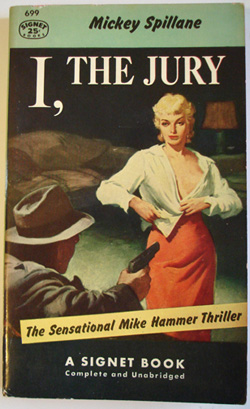
Word of the Day: Ablution
Paul Schleifer
According to the Oxford English Dictionary, ablution means the act of washing oneself. The OED further says that the English word has multiple origins, including Middle French ablucion, meaning purification by baptism, and Latin ablution, meaning spiritual purification. The Latin is actually the past participle of abluere, to wash off. And according to www.etymonline.com, abluere comes from the prefix ab– “off, away from” + luere “to wash,” from PIE root *leue– “to wash.”
The PIE root forms all or part of: ablution; alluvium; deluge; dilute; elution; lather; latrine; launder; lautitious; lavage; lavation; lavatory; lave; lavish; lotion; lye.
It is the hypothetical source of/evidence for its existence is provided by: Greek louein “to wash, bathe;” Latin lavare “to wash,” luere “to wash;” Old Irish loathar “basin,” Breton laouer “trough;” Old English leaþor “lather,” læg “lye.”
Today is the birthday of Frank Morrison Spillane (9 March 1918 – 17 July 2006), better known as Mickey Spillane. Spillane was born in Brooklyn and grew up in Elizabeth, NJ. After trying a bit of college and working a variety of jobs, including as a trampoline artist in the circus, Spillane found himself working for Gimbels, where he met a tie salesman who got him interested in writing for comic books.
Then the war happened, and Spillane joined the Army Air Corps on December 8, 1941. He became a fighter pilot and then a flight instructor. Once Spillane’s flight path took him over Murrell’s Inlet, SC, and he decided that that was where he wanted to spend his life. And he did. While stationed in Mississippi, Spillane met and married Mary Ann Pearce. When the war was over, the couple wanted to move to New York and buy a house in the country, but to do so, Spillane needed income. So he decided to write a novel.
The genre we call hard-boiled detective fiction had been around for roughly 25 years, going back to Raymond Chandler and Dashiell Hammett and Black Mask magazine. This detective is not the same as the ones we find in British detective stories—he is no Hercule Poirot or Father Brown. He’s a professional, for one, and more of a fighter than a thinker. He is also frequently a loner, with maybe a couple of friends, and usually with an antagonist or two on the police force. In short, he’s a tough guy with a good heart who is unafraid to use violence when it is necessary.
Spillane took this character one step further. Spillane’s Mike Hammer takes violence to a level unseen in earlier detective fiction, and he seems to enjoy it. Hammer also really enjoys a romp with a lady or two dozen. And for all the simplicity of novels like The Maltese Falcon or The Big Sleep, they tend to look downright literary compared to I, the Jury, Spillane’s first novel. Of course, the difference in style may have something to do with Spillane’s approach to writing—for instance, he wrote I, the Jury in 19 days.
Never popular with critics, Spillane has nevertheless been very popular. His novels have sold over 250 million copies. Other titles include My Gun Is Quick, Vengeance Is Mine!, The Big Kill, Kiss Me Deadly, and The Killing Man.
Mickey Spillane is not one of my favorite authors, even in the crime fiction genre. I am more partial to Robert B. Parker and Michael Connelly. But I have to respect his accomplishments as an author, even if I might feel that, after reading one of them, I should take my ablutions.
The image is a photo of the cover of Mickey Spillane’s first novel. I think you get the picture.